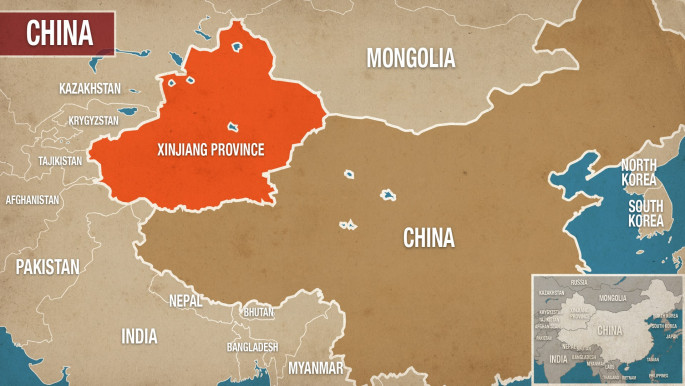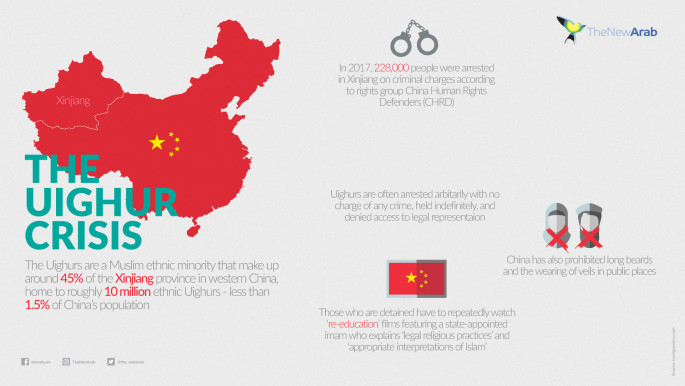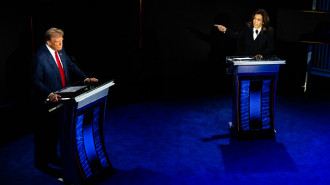US has 'deep concerns' about UN counterterrorism official's trip to China
Deputy Secretary of State John Sullivan, in a phone call Friday with UN Secretary-General António Guterres, called the visit "highly inappropriate in view of the unprecedented repression campaign underway in Xinjiang against Uighurs, ethnic Kazakhs, Kyrgyz, and other Muslims".
The Chinese foreign ministry confirmed that Vladimir Ivanovich Voronkov, the undersecretary-general of the UN counterterrorism office, is in China at the country's invitation, but didn't provide any details.
"More specific information will be released in time," ministry spokesman Geng Shuang said at a daily briefing.
China has come under fire recently from the international community for its policies in the region of Xinjiang, where as many as one million Uighurs and other mostly Muslim minorities are being held in a vast network of internment camps.
Chinese officials describe the camps as vocational training centers and say they are necessary to curb religious extremism.
 |
Sullivan told Guterres that "Beijing continues to paint its repressive campaign against Uighurs and other Muslims as legitimate counterterrorism efforts when it is not," and that Voronkov's trip puts the UN's reputation and credibility at risk.
'See for yourself'
Geng has previously said the US accusations are "fabricated lies" and that the United States should not interfere in China's internal affairs.
Human Rights Watch criticised the UN for sending a counterterrorism official instead of a human rights expert, saying it risks deflecting attention from what it called "a massive government rights violation against the Turkic Muslim population".
Chen Xu, China's new ambassador in Geneva, told reporters Thursday that China had invited UN High Commissioner for Human Rights Michelle Bachelet to visit the camps in Xinjiang "to see for herself."
UN spokeswoman Marta Hurtado confirmed Bachelet had met Chen and that her office is continuing to negotiate "full access" for any trip to China.
Geng said China would welcome a visit but added, "we will never allow people with political purposes to interfere in China's internal affairs and damage China's sovereignty and territorial integrity with their visit to Xinjiang."
'Anti-terrorism'
The US envoy on religious liberty slammed the Islamic world on Tuesday for not condemning China's ongoing mass incarceration of Uighur Muslims.
Washington's closest allies and big players in the region - Saudi Arabia, the UAE and Egypt - have been quiet on the issue. Turkey is one of the region's few voices willing to risk its economic relationship with China by expressing support for the Uighur cause.
Saudi's Crown Prince Mohamed bin Salman, in particular, has been criticised for putting Riyadh's relationship with Beijing about the rights of the Muslim minority.
When the crown prince met with Chinese President Xi Jinping in February he defended China's "right" to undertake "anti-terrorism" and "de-extremism" measures.
Explainer: China's persecution of Uighur Muslims
Following a flare-up in violence in 2014, Chinese authorities rolled out various draconian security measures in Xinjiang - from banning long beards and headscarves to placing up to a million residents in detention camps.
Those free from detention are said to live in what is essentially a testing ground for the world's most sophisticated high-tech surveillance methods.
Muslims in Xinjiang are forced not to fast during the Muslim holy month of Ramadan and have allegedly been forced to drink alcohol and eat pork - both forbidden in Islam - in internment camps.
Rights groups and former inmates see the measures as part of a campaign to forcefully assimilate Uighurs and other minorities into the country's majority ethnic Han society, diluting their unique cultures and religious beliefs.
 |
Agencies contributed to this report.
Follow us on Twitter: @The_NewArab

![Palestinians mourned the victims of an Israeli strike on Deir al-Balah [Getty]](/sites/default/files/styles/image_684x385/public/2024-11/GettyImages-2182362043.jpg?h=199d8c1f&itok=xSHZFbmc)


![The law could be enforced against teachers without prior notice [Getty]](/sites/default/files/styles/image_684x385/public/2178740715.jpeg?h=a5f2f23a&itok=hnqrCS4x)
 Follow the Middle East's top stories in English at The New Arab on Google News
Follow the Middle East's top stories in English at The New Arab on Google News

![Voters in Michigan [Getty]](/sites/default/files/styles/image_330x185/public/2182490468.jpeg?h=a5f2f23a&itok=XMi_sWGX)
